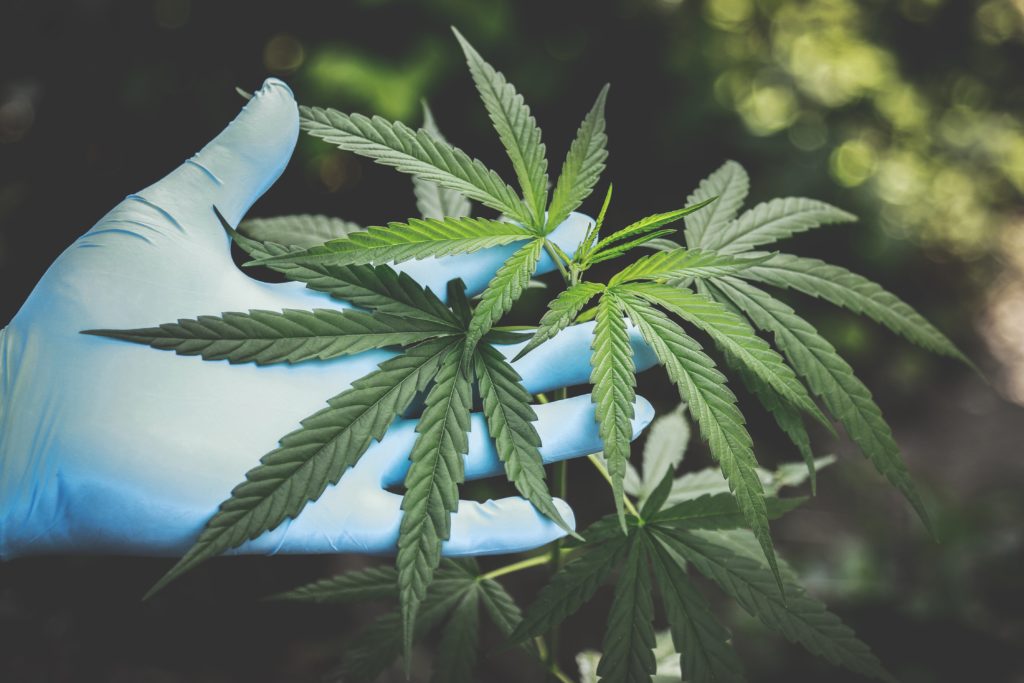The production and consumption of cannabis for personal recreational use will be authorized in Luxembourg. The move is aimed at combating drug-related crime, given the well-established failure that prohibition measures have had fighting drugs around the world. When legislation comes into effect, Luxembourg will become the first European country to legalize cannabis consumption and production.
Luxembourg Legalizes Recreational Cannabis, a First in Europe


Luxembourg will become the first country in Europe to legalize the production and consumption of cannabis. The government of liberal Xavier Bettel announced on Friday 22 October that it would allow the cultivation of cannabis at home and its consumption in the private sphere.
Luxembourg will maintain the ban on consuming cannabis in public but will introduce a “lighter criminal procedure”, limited to a fine of €145 if the consumption or purchase offenses do not exceed three grams.
This is happening at a time when one of Luxembourg’s neighbors is also radically changing its laws. To find out who, download our free cannabis news app.
“Cannabis Must Be Legalised”: The Shock Economists’ Report
Each household will be allowed to grow four cannabis plants at home. Trade in seeds will also be allowed with no limits on the quantity or levels of tetrahydrocannabinol (THC), the main psychoactive constituent of cannabis. Consumers will be able to import or buy seeds in shops or online.
Luxembourg will maintain the ban on consuming cannabis in public, but will introduce a “lighter criminal procedure”, limited to a fine of €145 if the consumption or purchase offenses do not exceed three grams.
Fighting Fire with Fire
This measure is part of a legislative package to combat drug-related crime. Justice Minister Sam Tanson explained that this is a “first step” in the government’s response to the “drug problem”.
“Cannabis is the most widely used drug and accounts for a large proportion of illegal trafficking. The idea is that a consumer is not in an illegal situation if they use cannabis and that we don’t support the whole illegal chain, from production to sale to transport, where there is a lot of suffering.”
First Country in Europe to Legalize Cannabis
When elected in 2018, the coalition government had promised decriminalization or even legalization of recreational cannabis through domestic production. But the Luxembourg government has scaled back its ambitions in order to protect its relations with neighboring countries, especially France, which feared the emergence of a trafficking center on its borders. The legislative package of measures will be examined by the parliament early next year and could be voted on by the end of 2022
Luxembourg joins Canada, Mexico, Uruguay, and eleven US states that have already decriminalized the recreational use of cannabis and no longer limit its use to strictly medical purposes. In the Netherlands, possession, and trade of cannabis are illegal, although a policy of tolerance is applied.
—
(Featured image by Aphiwat chuangchoem via Pexels)
DISCLAIMER: This article was written by a third-party contributor and does not reflect the opinion of Hemp.im, its management, staff, or its associates. Please review our disclaimer for more information.
This article may include forward-looking statements. These forward-looking statements generally are identified by the words “believe,” “project,” “estimate,” “become,” “plan,” “will,” and similar expressions. These forward-looking statements involve known and unknown risks as well as uncertainties, including those discussed in the following cautionary statements and elsewhere in this article and on this site. Although the Company may believe that its expectations are based on reasonable assumptions, the actual results that the Company may achieve may differ materially from any forward-looking statements, which reflect the opinions of the management of the Company only as of the date hereof. Additionally, please make sure to read these important disclosures.
First published in nouvelobs, a third-party contributor translated and adapted the article from the original. In case of discrepancy, the original will prevail.
Although we made reasonable efforts to provide accurate translations, some parts may be incorrect. Hemp.im assumes no responsibility for errors, omissions or ambiguities in the translations provided on this website. Any person or entity relying on translated content does so at their own risk. Hemp.im is not responsible for losses caused by such reliance on the accuracy or reliability of translated information. If you wish to report an error or inaccuracy in the translation, we encourage you to contact us.



Comments are closed for this post.